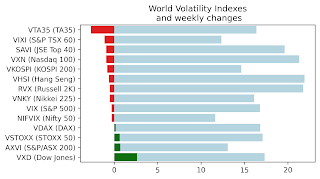Many traders are under assumption that they can profit by selling options before weekend (especially 3-day weekend like last week) because market-makers are not properly adjusting options. It is true that in the 80s and 90s options pricing was done using computer-generated sheets updated overnight, and market-makers were quite liberal in terms of updating the "date". Still it probably never provided an opportunity for other traders since bid-ask spreads were significant to prevent any meaningful profit.
In the late '90 and early '00 computers started playing dominant role in options pricing. I have heard the following "rule" from a market-maker: on Friday set the date for Sunday, to prevent Friday to Monday price jumps.
Currently, options market-making is highly automated. Time to expiration is being adjusted in real-time, millisecond by
millisecond. Not only that, different days of the week have different decay rates: trading days -high, weekends - low. Different times of day decay at different rates as well - for example the first half-hour after the open have higher decay rate than the mid-day.
Now I will address a theoretical point on options pricing: let's consider 3 calendars and its implication on implied volatility calculation. Link to google docs spreadsheet. The first trader is using regular calendar - 365 days per year, the second trader uses business days calendar with 252 days per year. Days to expiration, starting from 2 weeks before x-date are columns in the spreadsheet. Market, however prices options somewhat in between, counting weekends as half-days of decay, with 280 "days" in the year (1/4 * 365 + 3/4 * 252 ~ 280)
For simplicity consider ATMF straddle that we price as 100 * sqrt(T) , using market 280 day convention (row 6 in the spreadsheet) and implied bias from calculating using 365 (row 8) or 252 (row 9). This biases our volatility estimate from 5% below to 14% above, which is significant.



No comments:
Post a Comment